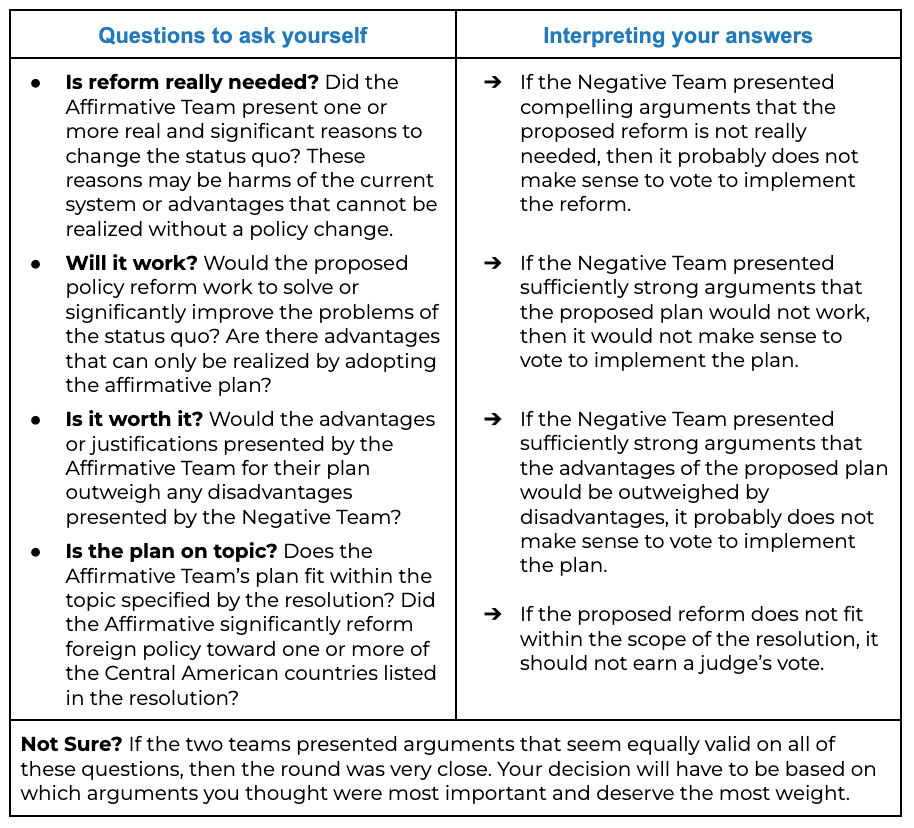League Policies
Every round is different, and the deciding factors will vary, but the following questions can help to evaluate the round in a fair and reasonable way. Keep in mind that in close rounds, even experienced judges may disagree about who won. In every sense, judging debate comes down to making judgment calls, so we simply ask that you decide which team was most persuasive to you.
What to Consider
- Quality of the Affirmative Team’s Plan: Does the plan solve a real problem within the resolution without creating disadvantages that outweigh the advantages? See the Decision Table for an Affirmative Case (below) for help with this.
- Quality of Reasoning: Which team made the best logical connections between key arguments and the issues in the round?
- Quality of Arguments: Which team presented the best quality and depth of arguments in favor of their position?
- Clarity: Which team was easier to follow and understand?
- Quality of Support: Which team provided the best support for critical points? When debaters support their arguments by referring to expert sources, look for a verbal citation and direct quotation so that you can judge the quality and accuracy of the evidence.
- Alternative Approaches: If one of the teams used a non-traditional approach to the debate round, did they convince you of the validity and soundness of that approach?
- Conduct: A debater or debate team who plainly behaves in a deceitful or rude manner toward an opponent should not be granted a win.
What NOT to consider
- Personal opinions or biases: Remember that your evaluation should be based on what the debaters said in the round rather than on what you personally believe about a topic. You are evaluating how well the teams debated each other, not how well they overcame your own biases. Approach the topic with an open mind; debaters have been assigned their sides, and they debate on both sides throughout the tournament. Feel free to apply a filter of common sense, but try not to give debaters credit for any arguments that they didn’t actually make, and don’t dismiss an argument only because you do not personally agree with it.
- Partiality: Set aside partiality based on competitor name recognition, known levels of experience, appearance, etc.
- Late arguments: Debaters should present all of their main assertions and lines of argumentation in the constructive speeches. Therefore, judges should set aside any completely new lines of argumentation that are raised for the first time in rebuttal speeches because the opponent is deprived of an adequate opportunity to respond.
- Speaker points: It is possible for a less eloquent and/or less experienced speaker to win a round based on critical points of argumentation but be ranked lower in speaker points.
Decision Table for an Affirmative Case
There are a range of reasonable methods judges may use to make a policy debate decision. Debaters may persuade judges to use any reasonable method. In the absence of a clear judging framework, the following questions may be helpful. Remember that it is up to the debaters to make the necessary arguments to earn your vote regardless of how they approach the round.

